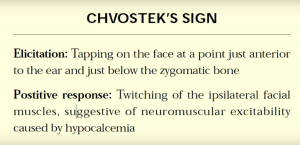An alert, competent client refuses to take her antihypertensive medication. The nurse has explained why the medication is important and the client states that she understands but doesn't want to take the medication. What is the best nursing action?
Give the medication anyway because it's important for the client
Withhold the medication and report it to the prescriber
Withhold the medication and file an incident report
Inform the client that the medication must be taken until the nurse gets an order to discontinue it
The Correct Answer is B
Choice A rationale: Administering the medication against the client's will is not respectful of the client's autonomy and right to make decisions about her own care.
Choice B rationale: Withholding the medication and reporting it to the prescriber is appropriate. The prescriber can reassess the situation and determine the next course of action.
Choice C rationale: Withholding the medication and filing an incident report may be premature; it is essential to involve the prescriber first.
Choice D rationale: Informing the client that the medication must be taken until the nurse gets an order to discontinue it may not be the best approach, as it does not respect the client's right to refuse treatment. The prescriber should be involved in the decision-making process.
Nursing Test Bank
Naxlex Comprehensive Predictor Exams
Related Questions
Correct Answer is D
Explanation
Choice A rationale: A potassium level of 4.2 mEq/L is within the normal range and would not validate Trousseau's and Chvostek's signs.
Choice B rationale: A phosphate level of 3.0 mg/dL is within the normal range and would not validate Trousseau's and Chvostek's signs.
Choice C rationale: A magnesium level of 1.8 mEq/L is within the normal range and would not validate Trousseau's and Chvostek's signs.
Choice D rationale: A calcium level of 6.9 mg/dL is below the normal range and could validate Trousseau's and Chvostek's signs.

Correct Answer is C
Explanation
Choice A rationale: The normal stimulus to breathe is an increased carbon dioxide level, which stimulates the respiratory center in the brain.
Choice B rationale: Increased oxygen levels do not serve as the primary stimulus for breathing. The respiratory center is primarily responsive to carbon dioxide levels.
Choice C rationale: Increased carbon dioxide level is the correct stimulus for normal breathing.
Choice D rationale: Decreased oxygen level is not the primary stimulus for normal breathing.
Whether you are a student looking to ace your exams or a practicing nurse seeking to enhance your expertise , our nursing education contents will empower you with the confidence and competence to make a difference in the lives of patients and become a respected leader in the healthcare field.
Visit Naxlex, invest in your future and unlock endless possibilities with our unparalleled nursing education contents today
Report Wrong Answer on the Current Question
Do you disagree with the answer? If yes, what is your expected answer? Explain.
Kindly be descriptive with the issue you are facing.
